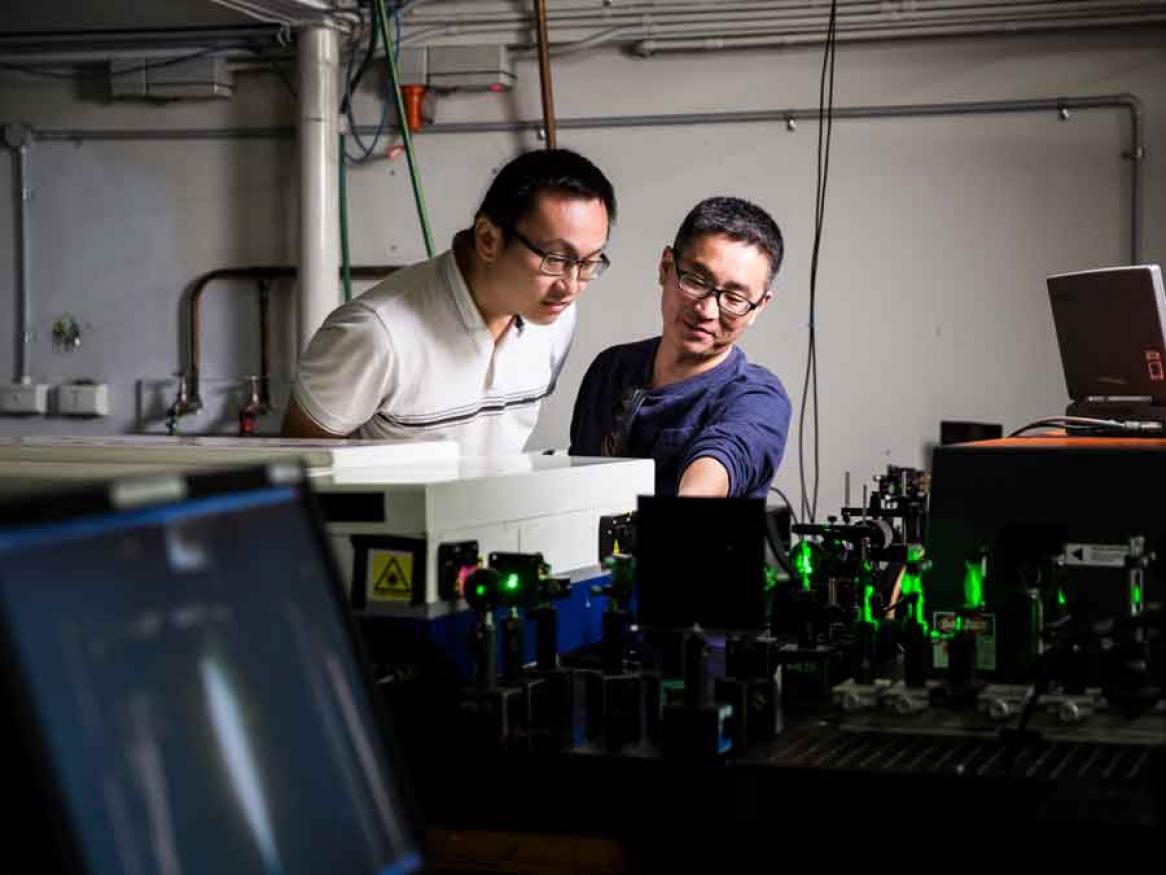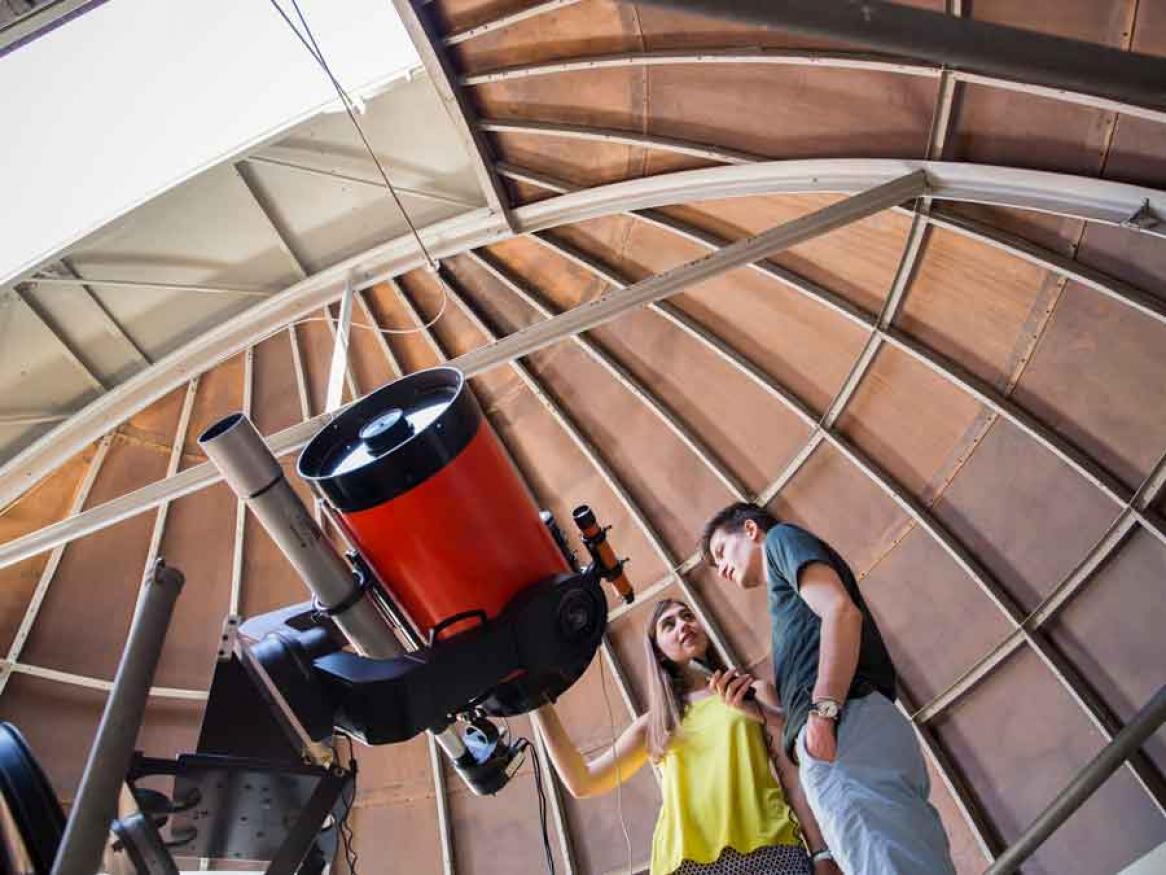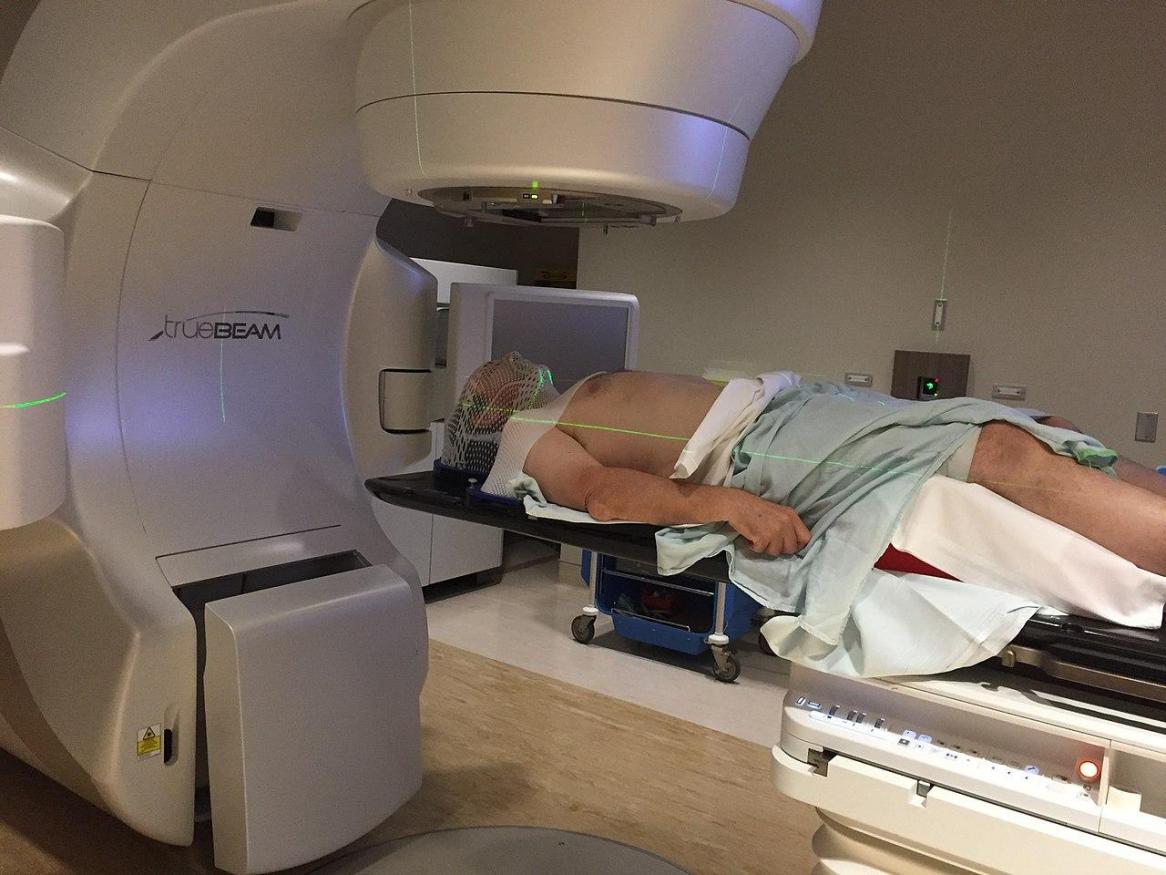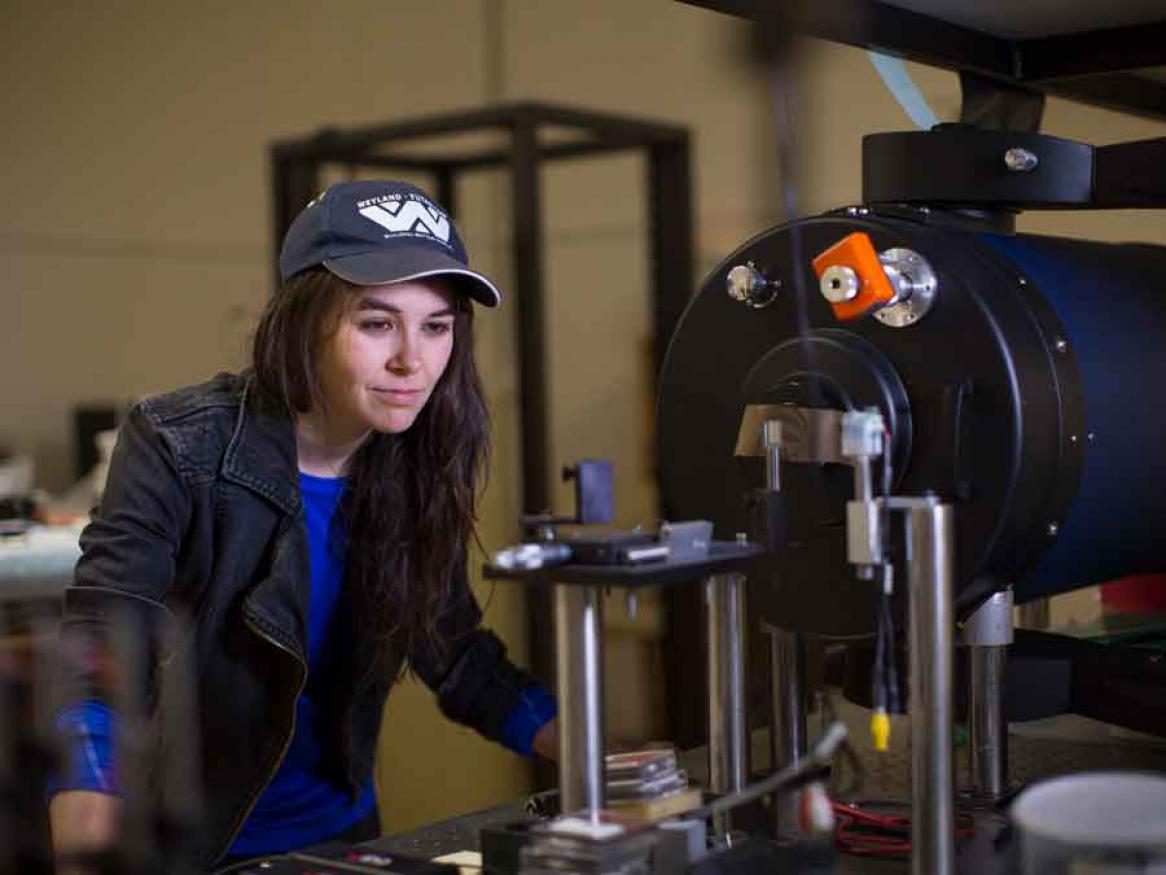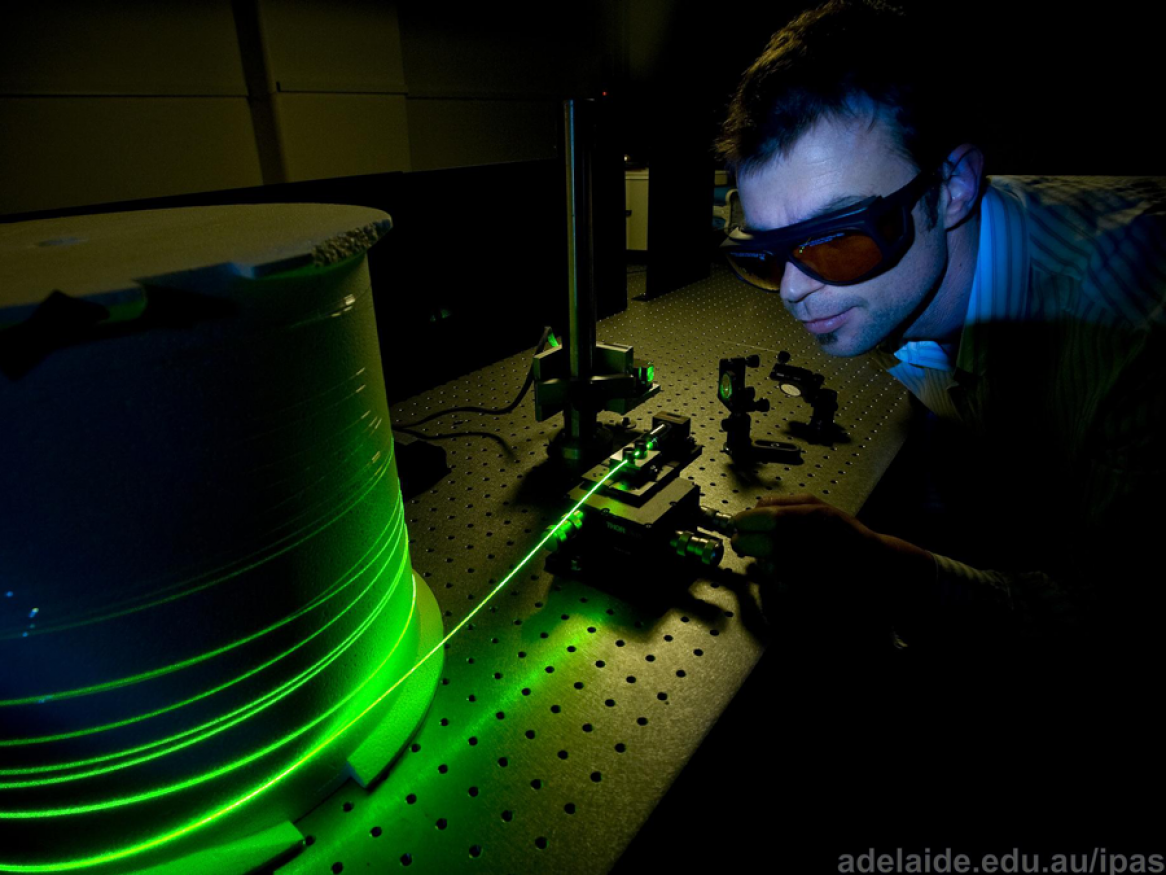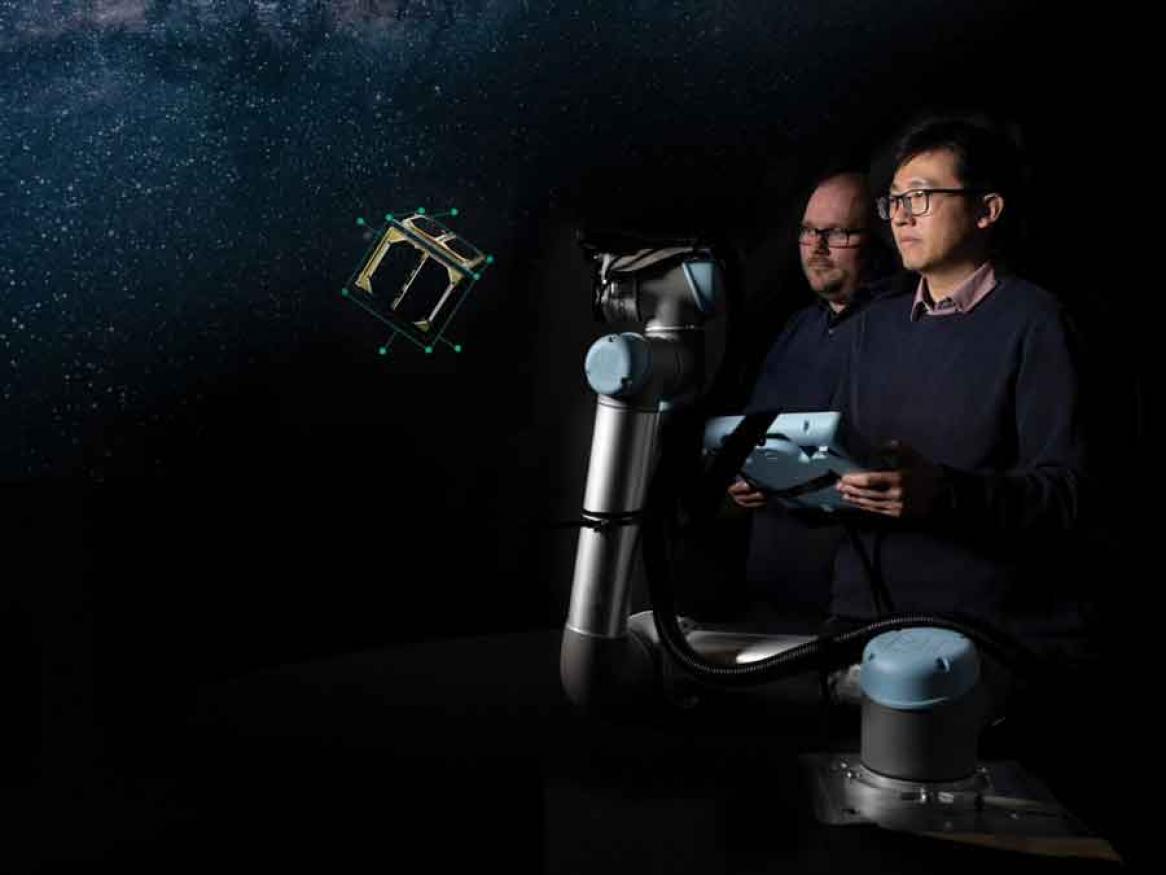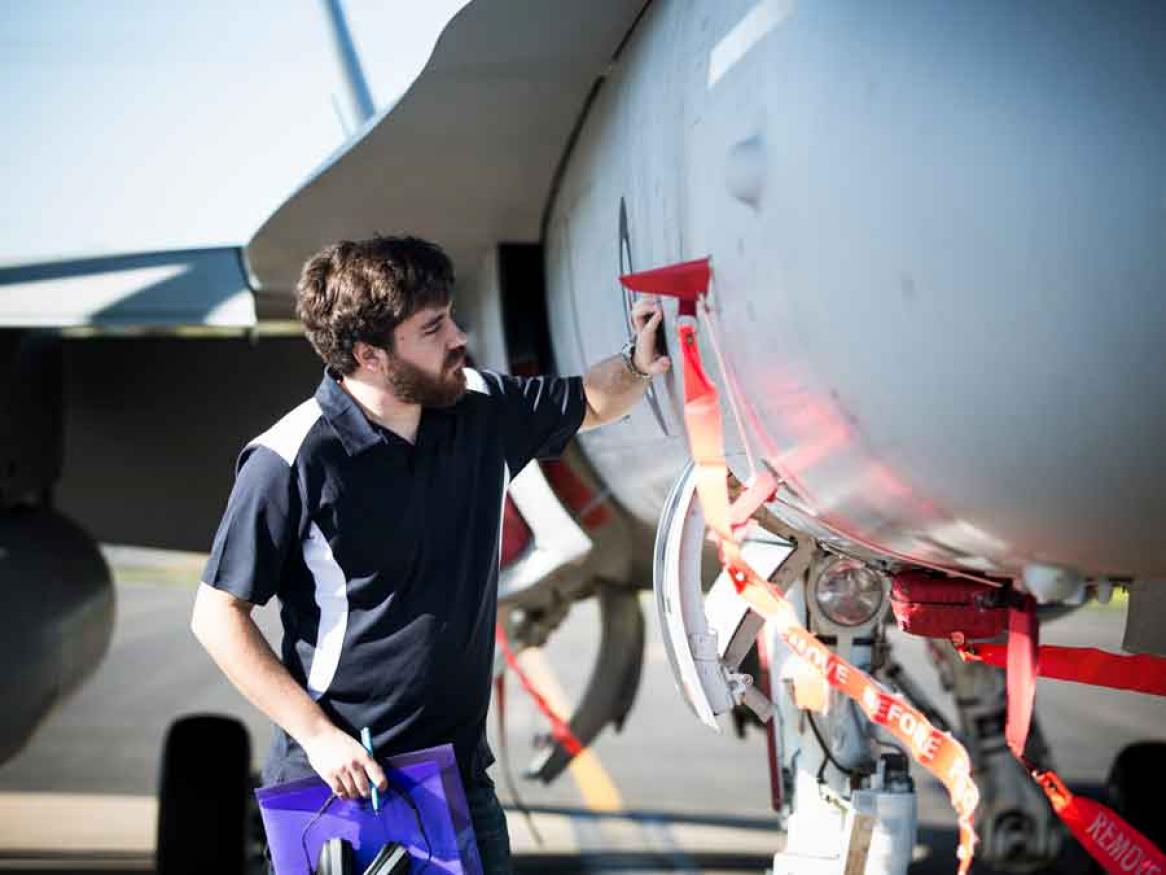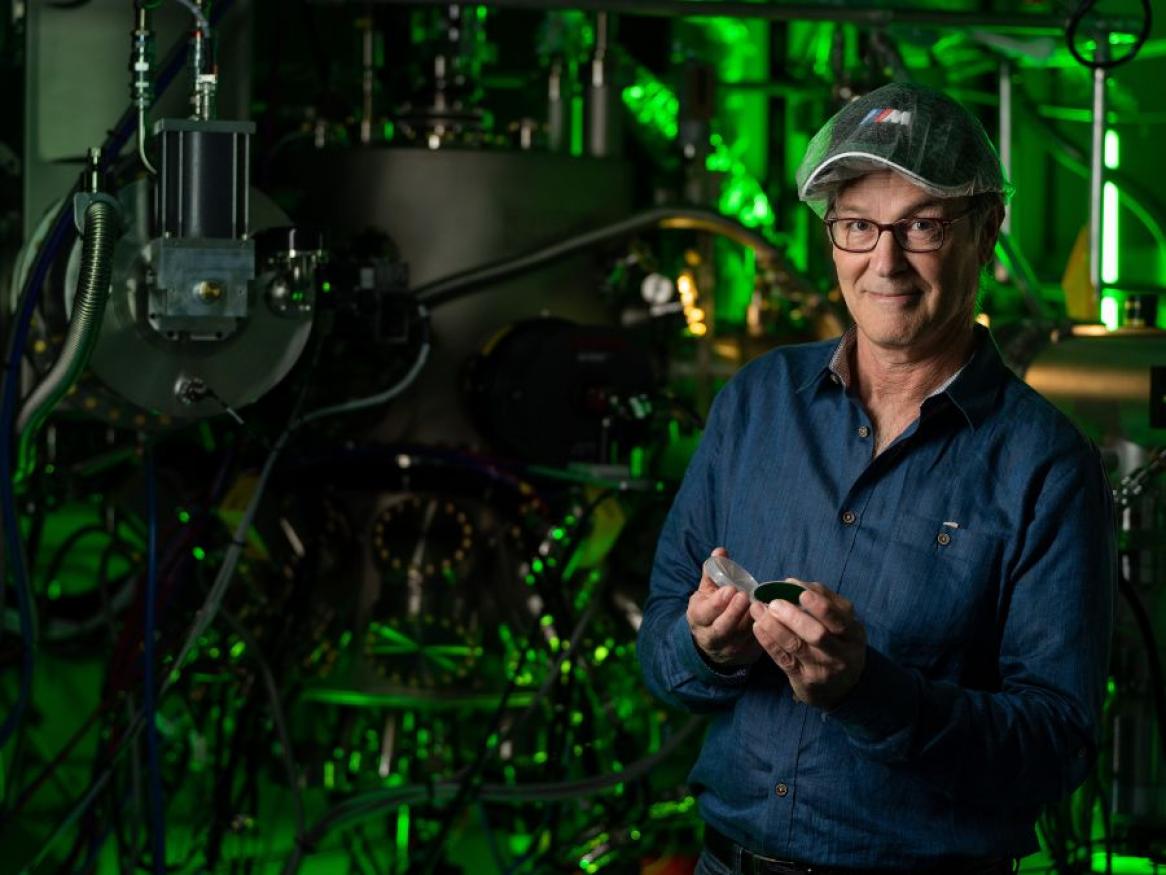Physics Research
Our physics research captures international attention in the world’s best research journals, as we collaborate with national and international partners on cutting-edge global physics projects.
We explore the fundamental studies of the structure of sub-atomic matter and develop novel optical and photonic systems for a wide range of applications.
Through our astrophysics and geophysics programs, we analyse the structure of the universe under, above and beyond the Earth including investigating the upper atmosphere using a network of sites that stretch from the equator to the Antarctic.
We also aim to improve healthcare through our medical physics research such as our ground-breaking work on radiotherapy.
The University of Adelaide is also one of only three universities in the world to be part of three of the biggest physics discoveries in the last 100 years, including the Nobel-prize winning discovery of gravitational waves by LIGO; the discovery of the Higgs boson at CERN and the discovery of astrophysical neutrinos by IceCube.
Data science and super computing
Modern science meets technology. Modelling complex systems and analysing big data to apply expertise to complicated environmental, social and financial systems.
Environmental sensing
Using lasers and optical fibres to measure time and materials in the Earth to improve the accuracy of mining; and to forensically examine archaeological and palaeontological sites.
High-energy astrophysics and extreme astronomy
Studying extreme processes in astrophysics through observation of highly-energetic cosmic rays, gamma rays, visible light, neutrinos and gravitational waves.
Medical physics
Improving clinical radiotherapy and medical imaging, and exploring future clinical applications of proton therapy.
Nuclear and particle physics
Undertaking research across all aspects of subatomic physics, including theoretical and experimental studies in QCD, particle physics, and dark matter.
Optics, lasers and photonics
New photonic technologies for scientific, industrial, mineral, environmental, agricultural and medical applications.
Space and atmospheric physics
Exploring Earth from the ground up. From weather and climate, to solar events which affect power lines, radar surveillance, telecommunications and space vehicles.
Defence and security
Using physics to enhance and improve Australia's defence and security.
Quantum Materials and Technologies
Researchers in quantum materials harness quantum mechanics to develop new or improved states of material leading to innovative devices and systems, with the goal of creating new and improved technologies.
-
State-of-the-art international research facilities
Critical to Physics research and teaching, leading-edge facilities are accessible through the Institute for Photonics and Advanced Sensing. This includes the Braggs Building, Prescott Environmental Luminescence Laboratory, Advanced Manufacturing Facilities, Optofab Adelaide, Soft Glass and Fibre Fabrication Facility, Silica Fibre Fabrication Facility and Analytical Facilities. For major research collaborations, the Stawell Research Facility – the first underground physics laboratory of its kind in the southern hemisphere – for example, is also used.
-
Higher Degrees by Research opportunities
Whether intending to work in research or industry, a higher degree by research or other postgraduate study can equip students with a clear competitive edge.
Find out more about studying a Master of Philosophy (MPhil) or Doctor of Philosophy (PhD).


